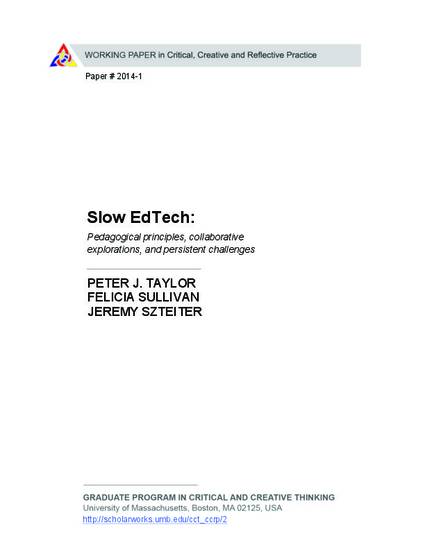
- Collaborative explorations,
- Learning,
- MOOCs,
- Pedagogical guidelines,
- Slow design,
- Social competencies
This article describes two “Slow EdTech” initiatives, using this label to denote a focus on learning and the development of capacities for learning along with a mindful approach to the uptake of new digital tools that become available. One initiative, dating from 2001, is a set of guidelines about specific situations and specific ways in which specific educational technologies are of significant pedagogical benefit. The other, dating from 2013, is online Collaborative Explorations (CEs) for moderate-sized open online collaborative learning. The tools and processes used in CEs for inquiry, dialogue, reflection, and collaboration are designed to be readily learned by participants so they can translate them into their own settings to support the inquiries of others. Reflection on both initiatives points to the deeper source of challenges for Slow EdTech, namely, the political, economic and cultural context in which U.S. education is embedded.
Available at: http://works.bepress.com/jeremyszteiter/2/
